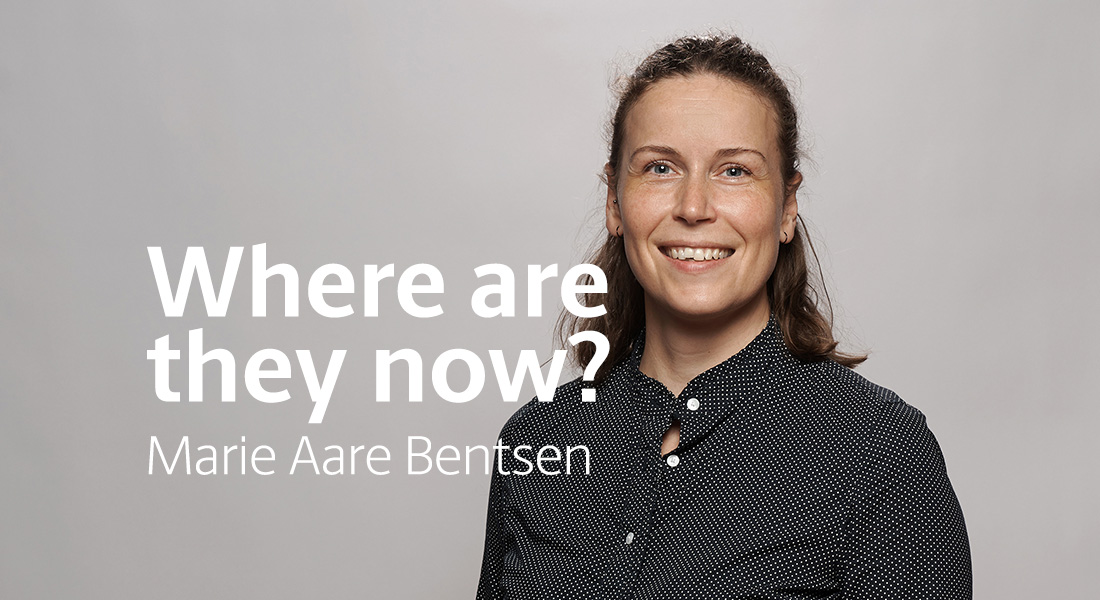“My end product in industry is helping patients”
Marie Aare Bentsen is a portfolio scientist at Novo Nordisk, where she is “on a mission to find and accelerate better treatment options for Alzheimer's disease”. She joined the Danish pharmaceutical giant in August 2021 after more than a decade at the University of Copenhagen. We spoke to her about her new role and her career to date.

Have you always wanted to be a scientist?
Back in high school, when I was considering what to do, I thought about working with children because I had good people skills. I didn't think I could do science. One day, I spoke with boyfriend, which is now my husband, about it: “I like nature and biology, but I'm just not bright enough to study it.” He told me: “Don’t be silly. Of course, you are.” That changed my mindset.
Can you summarize your career since then?
I’ve always been interested in biology and plants, so I did a bachelor’s in horticulture at the University of Copenhagen (KU). All my elective courses were about cell biology because I wanted to learn about cells and their machinery. I switched to biotechnology for my master’s and did my thesis within genetic epidemiology in diabetes and obesity. In 2011, I started a Ph.D within pharmacology, focusing on metabolism, diabetes and obesity. In 2016, I accepted a post-doctoral fellowship in Tune Pers’s research group and the following year I received funding to pursue a postdoctoral fellowship in Michael Schwartz’s lab at the University of Washington. I became a senior postdoctoral fellow at the CBMR in 2020.
What was your field of research at CBMR?
There were many but my most recent research question was based on the observation that if you give a certain peptide to the brains of diabetic rodents, they will restore their blood glucose levels to infinity, more or less. I was intrigued by that finding and thought it was super-interesting. Because we had single-cell transcriptomics — a relatively new technique that Tune Pers was building up — we could leverage that knowledge and the methodology to answer some of these questions.
You spent more than a decade at CBMR. What is so special about it?
The Center’s collaborative spirit makes it unique. That’s so important because you can call on experts and collaborate on projects to answer scientific questions. That's vital for any successful researcher, especially because methods are evolving. It's hard to be an expert in all areas and I would rather collaborate with experts than try to learn everything myself.
Why did you decide to leave academia and join Novo Nordisk?
It was a very long thought process to reach the point where I was ready to move into industry. It came down to the product. In academia, the product is very much about publishing papers, raising awareness of yourself and your research, and getting money for it. At Novo Nordisk, I have a unique opportunity to work with a very talented researcher and help patients. The project I’m working on is so advanced and has so many elements within it that I can really see myself making a difference for patients — which is my end product in industry, helping patients.
What is your new role?
My position is as a portfolio scientist within the Alzheimer's disease track. There is some evidence that a drug which is based on GLP-1 — a peptide secreted from the gut — and is used for treating diabetes and obesity may also have an effect on cognition. This well-known drug could potentially treat Alzheimer's patients. My role is to support the research projects and ad hoc tasks across the organisation and help us figure out what it is that GLP-1 is doing for cognition.
What motivates you about the role?
There is a huge unmet need for drugs within the Alzheimer's field. It's a horrible disease. Working to try and make a difference with a potential drug – that's why the role ticks my boxes.
Has your research influenced how you live your own life?
My research? No. The research field? Yes. A lot of the research motivates me to exercise more.
Lastly, do you ever talk to your husband about his impact on your career?
My husband has always been extremely supportive and knows it.
This interview was edited for clarity and concision.
